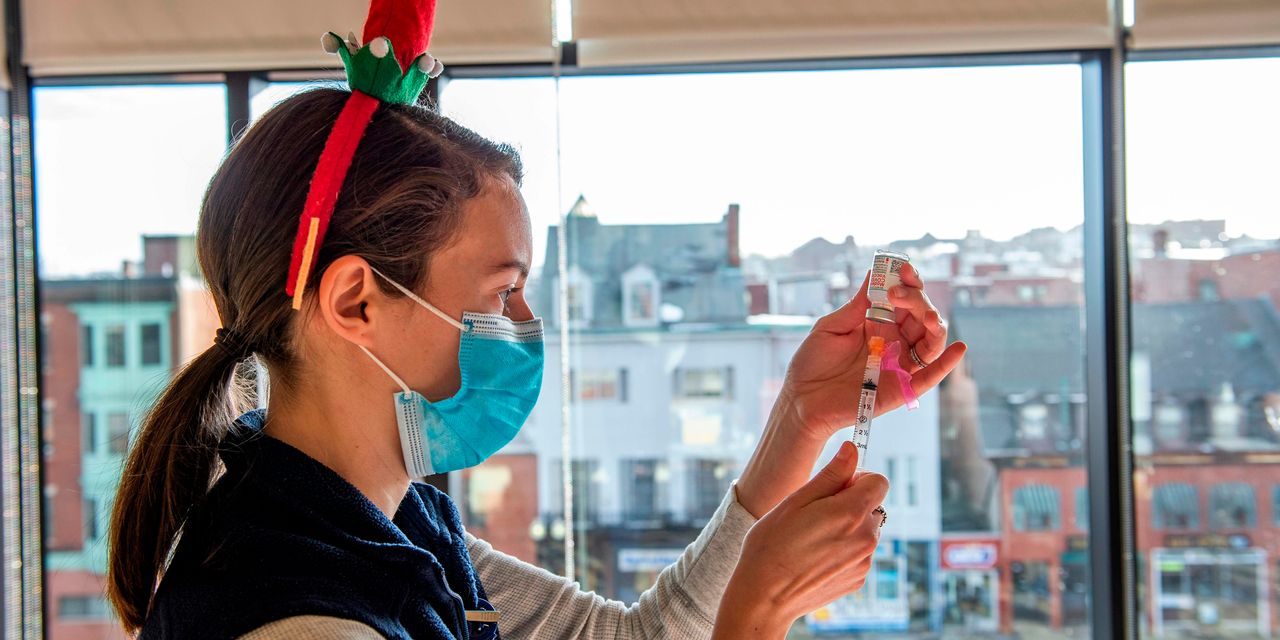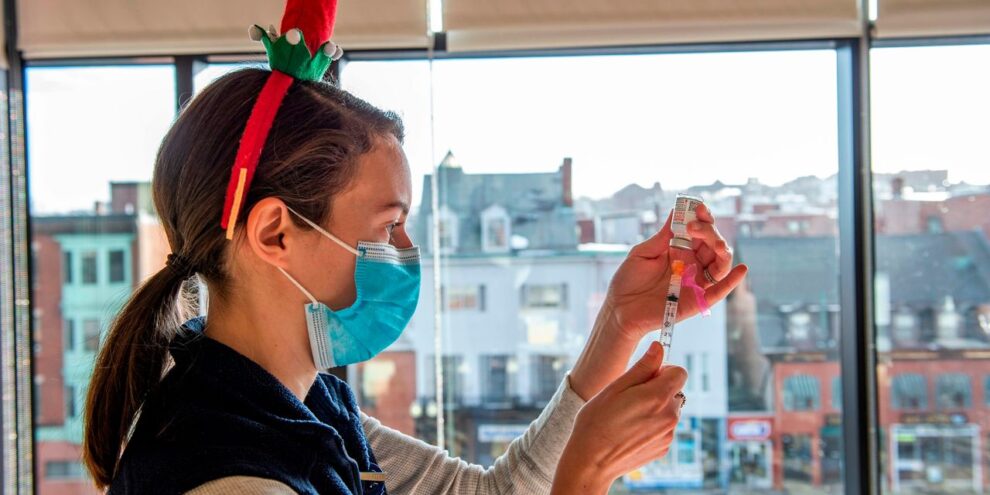
People with certain underlying conditions can receive a COVID-19 vaccine as long as they haven’t had a severe allergic reaction to any of the vaccine’s ingredients, the Centers for Disease Control and Prevention said in recently released guidance.
“Adults of any age with certain underlying medical conditions are at increased risk for severe illness from the virus that causes COVID-19,” the agency noted in recommendations posted Saturday.
As of Wednesday, 338,656 people have died from COVID-19 in the U.S., and 19.5 million people have been infected, according to data aggregated by Johns Hopkins University. Worldwide, 1,792,786 have died from the virus and over 82 million people have tested positive; that does not, for the most part, account for those who are asymptomatic.
People with weakened immune systems, including some people living with HIV, could be at heightened risk for a serious case of COVID-19 and can receive a vaccine, the CDC said.
But they should take note of limitations in vaccine-safety data, the agency added, which isn’t yet available for those groups. While clinical trials included people with HIV, safety information specific to that population isn’t available yet either.
People living with autoimmune conditions can get an mRNA coronavirus vaccine, according to the CDC, but they too should note that there’s no such safety data available.
Those who have previously had Guillain-Barré syndrome (GBS), a rare but potentially serious autoimmune condition, can also get the vaccine. “With few exceptions, the independent Advisory Committee on Immunization Practices (ACIP) general best practice guidelines for immunization do not include a history of GBS as a precaution to vaccination with other vaccines,” the agency says.
People who have previously had Bell’s palsy, a usually temporary weakness or paralysis of the face, can get the vaccine too. While COVID-19 vaccine trials included a few reports of Bell’s palsy, the Food and Drug Administration “does not consider these to be above the rate expected in the general population,” and hasn’t concluded that vaccination caused those cases, the CDC says.
“ People who get vaccinated against COVID-19 still need to follow current mitigation measures such as masking, social distancing and good hand hygiene until experts better understand how well the vaccines protect people in real life, the CDC says. ”
The new guidance came weeks after the FDA granted emergency-use authorization, a less-stringent clearance than full FDA approval that is being used to speed up the use of COVID-19 treatments and vaccines, to vaccine candidates from Pfizer PFE, +0.19% -BioNTech BNTX, -2.88% and Moderna MRNA, -5.99%. Both vaccines require two doses and employ mRNA technology, which teaches the body’s cells to create proteins that generate an immune response.
Fact sheets for the Pfizer-BioNTech and Moderna vaccines include a full list of their ingredients.
As of Monday morning, 2.1 million people in the U.S. had received their first vaccine doses and 11.4 million doses had been distributed, according to a CDC tally.
Public-health authorities have recommended that health-care workers and long-term-care facility residents be first in line for vaccination. Next up should be frontline essential workers and adults 75 and older, followed by adults aged 65 to 74, people aged 16 to 64 with high-risk medical conditions, and essential workers not previously included, according to CDC recommendations.
The average person in the U.S. who doesn’t fall into any high-priority categories will likely be able to get vaccinated in the spring or summer, experts say.
The Pfizer-BioNTech vaccine demonstrated 95% efficacy in clinical trials, while Moderna’s vaccine was about 94% effective. But people who get vaccinated against COVID-19 still need to practice current mitigation measures such as masking, social distancing and good hand hygiene until experts better understand how well the vaccines protect people in real life, the CDC says.
As news about vaccines cast some light on what has been a dark year for millions of people, the U.S. has averaged 183,140 daily COVID-19 cases over the past week, according to a New York Times tracker; at least 1,899 people died from the disease on Monday. The number of current hospitalizations hit a record high of 121,235 on Monday, according to the COVID Tracking Project.











Add Comment